It’s time we call get refusal the violence that it is.
By Rachel Stomel
Published in the Times of Israel Blogs
NOV 25, 2019, 19:49 PM
For two years, Chava* watched herself become a shell of the person she once was. Physical and emotional abuse chipped her soul away from the inside, like an invisible poison.
You must be defective, inadequate as a woman, he convinced her when she did not immediately become pregnant. You can’t even do the one thing your body was designed to do. Look how pathetic and powerless you are, Chava.
The verbal abuse was incessant until his voice became the voice she heard in her own head. You are shameful. You are nothing. You deserve nothing.
When she did give birth to a baby, he disappeared. First for eight months in one go, and then again for a three-month period. Alone and exhausted, never knowing when he would show up or abandon her again, Chava focused on survival. Focusing on anything else was a luxury she did not have.
But then, even survival began to seem like a luxury.
“I’ll throw you out of the house,” he threatened. “You’ll live in a tent. You won’t have anything.”
Domestic violence is not just the punches thrown and the voices raised. It is also the pauses between the punches, the silence between the fury, the fear of the unknown negative space that holds you hostage because you never know what’s coming next. The terror of unpredictability reinforces that you are not in control.
Because abuse, no matter what form it takes, is always about control. It creates and exploits vulnerabilities in order to highlight and exacerbate imbalances of power, whether physical, social, political, financial, sexual, religious or psychological. An essential prerequisite for abuse is asymmetrical power. The wider the discrepancy, the greater the potential for abusive control.
It was no surprise, then, that Chava’s husband refused to give her a get once she broke free.
The get was yet another tangible expression of the power imbalance between Chava and her husband, but this was a dynamic to which, in Israel, he was both religiously and legally entitled. As a Jewish man, it was his prerogative to grant or withhold the get, the unilateral religious divorce document that would release her from the marriage. As an Israeli, not only could he wield the get as a tool of religious control; absent civil marriage or divorce in Israel, his refusal to grant a get meant that he alone determined her legal status as well. Chava would remain legally tied to him and be responsible for his debts for as long as he exercised his “religious right” to withhold a get.
No Israeli court, rabbinic or secular, could enact divorce without his explicit order. Even further, any action that could be construed as pressuring him to give a get risked disqualifying the divorce; in order to be valid in accordance with Jewish and Israeli law, a get must be given entirely of the husband’s free will. His control must remain intact, always.
For two and a half more years, Chava begged her husband for a divorce in the rabbinic court. For two and a half years, nothing budged. And why should it? Why should Chava’s husband relinquish the last vestige of power he held over her life?
The rabbinic court would certainly not interfere. It was actually in Chava’s best interest, they explained, that they would not tell him to give a get. After all, they didn’t want to compromise any future get’s validity by potentially engendering a “forced get.” Instead, they encouraged “negotiation”– two and a half years during which Chava was repeatedly forced back into the courtroom so that her abuser could dangle her freedom over her head and laugh.
Look how pathetic and powerless you are, Chava. Remember who is in control.
If abuse stems from control, then the most effective way to end it is to neutralize the asymmetrical power relationship that facilitates it in the first place.
A few months ago, Chava found her way to the Center for Women’s Justice (CWJ), a public interest law organization that uses strategic litigation to champion the rights of women in Israel to equality, dignity and justice whenever they are compromised in the name of Jewish law.
Last Sunday, Chava walked out of the court with her get in hand.
What changed?
Read more in the Times of Israel >
